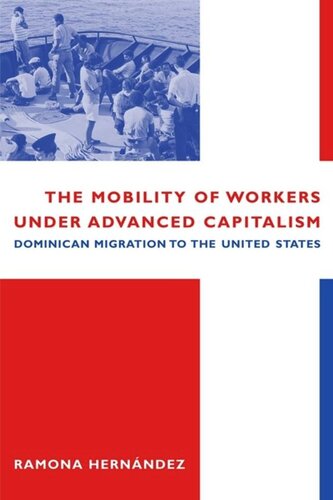

Most ebook files are in PDF format, so you can easily read them using various software such as Foxit Reader or directly on the Google Chrome browser.
Some ebook files are released by publishers in other formats such as .awz, .mobi, .epub, .fb2, etc. You may need to install specific software to read these formats on mobile/PC, such as Calibre.
Please read the tutorial at this link: https://ebookbell.com/faq
We offer FREE conversion to the popular formats you request; however, this may take some time. Therefore, right after payment, please email us, and we will try to provide the service as quickly as possible.
For some exceptional file formats or broken links (if any), please refrain from opening any disputes. Instead, email us first, and we will try to assist within a maximum of 6 hours.
EbookBell Team

4.8
104 reviewsUsing Dominicans in New York City as a case study, Ramona Hernández challenges the old belief that workers necessarily migrate from one region to another because of supply and demand or because of a de facto government policy to make people leave or stay. As a result, she shows that the traditional correlation between migration and economic progress does not always hold true.
What explains the international mobility of workers from developing to advanced societies? Why do workers move from one region to another? Theoretically, the supply of workers in a given region and the demand for them in another account for the international mobility of laborers. Job seekers from less developed regions migrate to more advanced countries where technological and productive transformations have produced a shortage of laborers. Using the Dominican labor force in New York as a case study, Ramona Hernández challenges this presumption of a straightforward relationship between supply and demand in the job markets of the receiving society. She contends that the traditional correlation between migration and economic progress does not always hold true. Once transplanted in New York City, Hernández shows, Dominicans have faced economic hardship as the result of high levels of unemployment and underemployment and the reality of a changing labor market that increasingly requires workers with skills and training they do not have. Rather than responding to a demand in the labor market, emigration from the Dominican Republic was the result of a de facto government policy encouraging poor and jobless people to leave—a policy in which the United States was an accomplice because the policy suited its economic and political interests in the region.